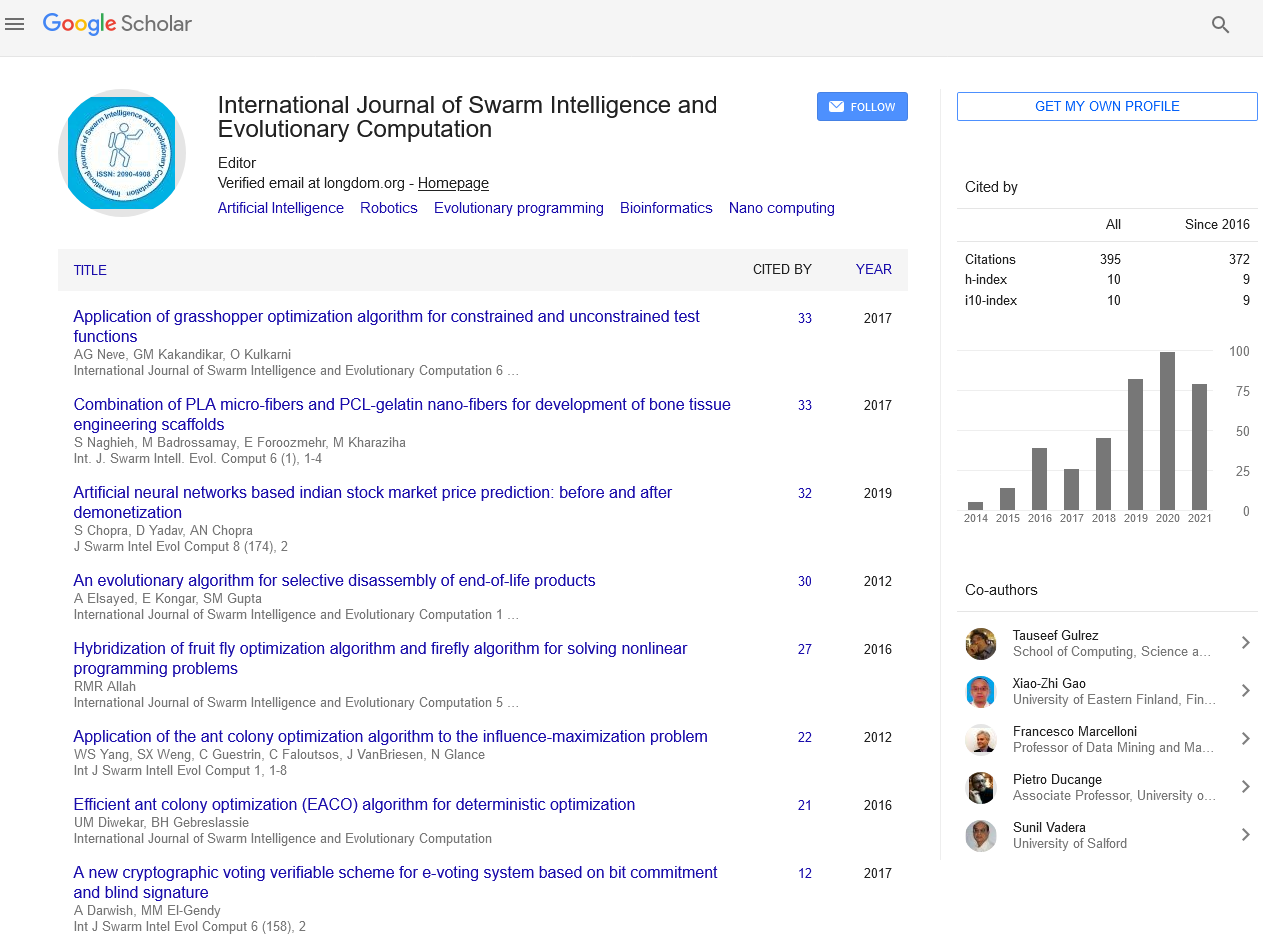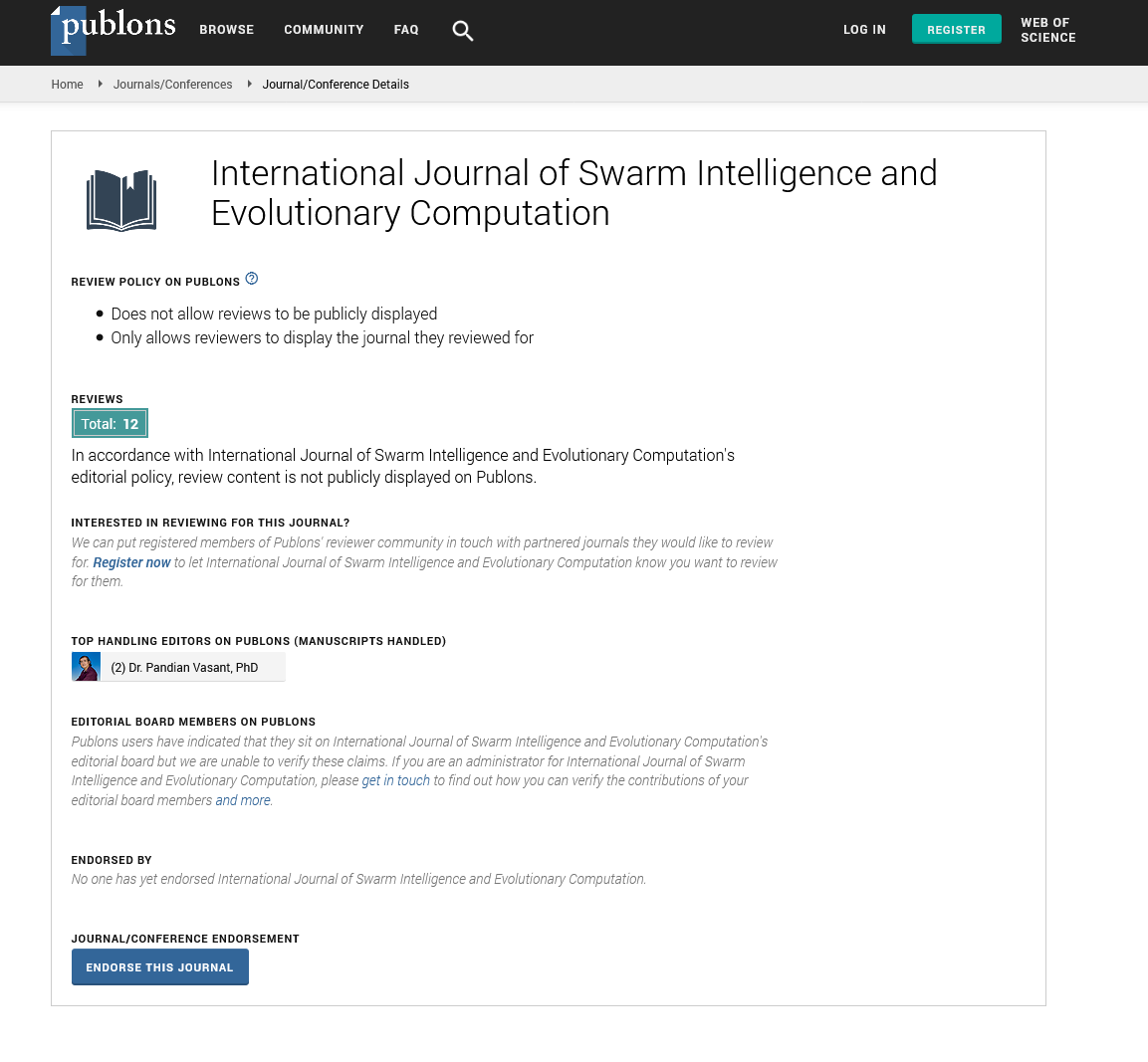Indexed In
- Genamics JournalSeek
- RefSeek
- Hamdard University
- EBSCO A-Z
- OCLC- WorldCat
- Publons
- Euro Pub
- Google Scholar
Useful Links
Share This Page
Journal Flyer

Open Access Journals
- Agri and Aquaculture
- Biochemistry
- Bioinformatics & Systems Biology
- Business & Management
- Chemistry
- Clinical Sciences
- Engineering
- Food & Nutrition
- General Science
- Genetics & Molecular Biology
- Immunology & Microbiology
- Medical Sciences
- Neuroscience & Psychology
- Nursing & Health Care
- Pharmaceutical Sciences
AI Methods: Applications of Bioinformatics and Image Processing
International Conference and Expo on Artificial Intelligence and Deep Learning
May 18, 2022 | Webinar
Avatharam Ganivada
Faculty of School of Computer and Information Sciences, University of Hyderabad, India
Scientific Tracks Abstracts: Int J Swarm Evol Comput
Abstract:
Several applications of bioinformatics and image processing include microarray clustering, microarray classification, segmentation of cancerous and non-cancerous tissues in medical images, instance segmentation in images. The Artificial Intelligence methods have been successful in dealing with those applications. For example, we present an instance segmentation method based on Mask R-CNN, which is modified to get better performance. Here, we use a Mask R-CNN as a base model which was published by the team of Facebook AI Research (FAIR) in 2018 and changing the original model by adding dropouts to improve accuracy. Specifically, in this proposed method, ResNet-50 is utilized for feature extraction. For better performance, feature pyramid network (FPN) [14] is used to extract stage-wise network features, in which a top down network path having lateral is used to obtain semantically strong features. The proposed model produces three outputs for each object in the image: class label, bounding box coordinates and object mask. The performance of the proposed network is evaluated in segmentation of ever instance in the images of COCO and cityscape datasets. The proposed model achieves better performance than the state-of-the-networks for the datasets. We discuss the recently developed deep neural network models: applications to gene clustering and tumor segmentation in ultrasound images.
Biography :
Dr. Avatharam Ganivada is a faculty of School of Computer and Information Sciences, University of Hyderabad. Prior to join the University, he has carried Ph.D. work in the area of granular rough fuzzy neuro computing and bioinformatics at Center for Soft Computing Research, Indian Statistical Institute, and received Ph.D. degree in Computer Science and Engineering from Calcutta University, Kolkata.


